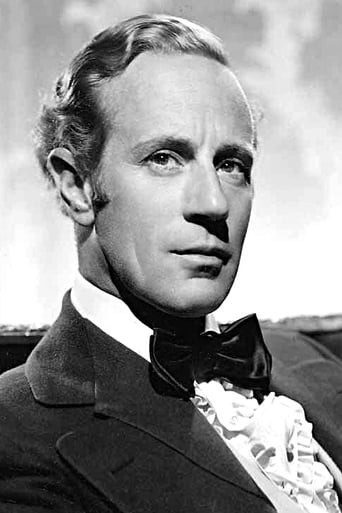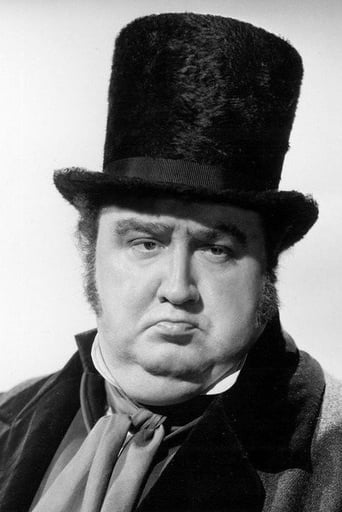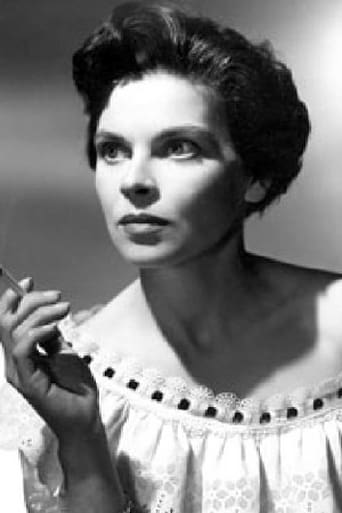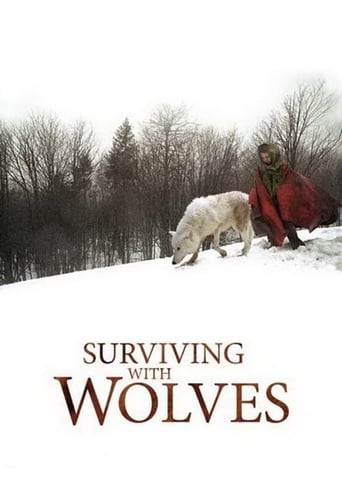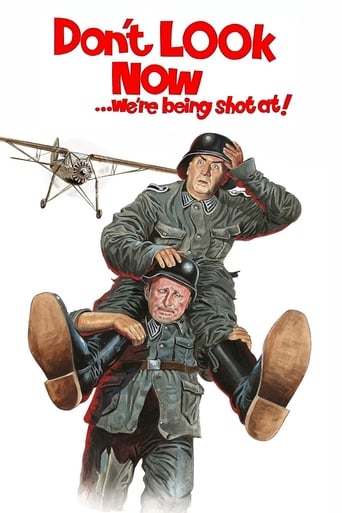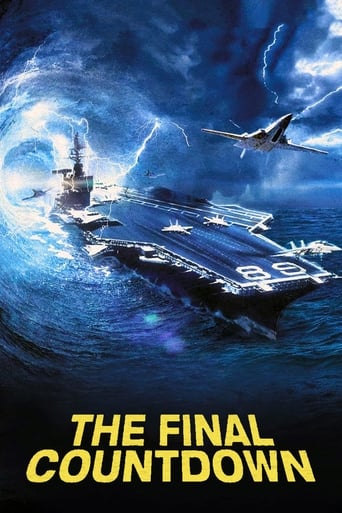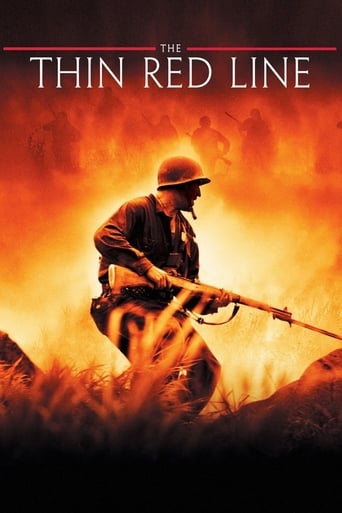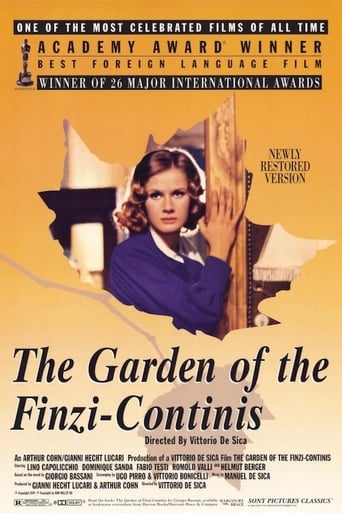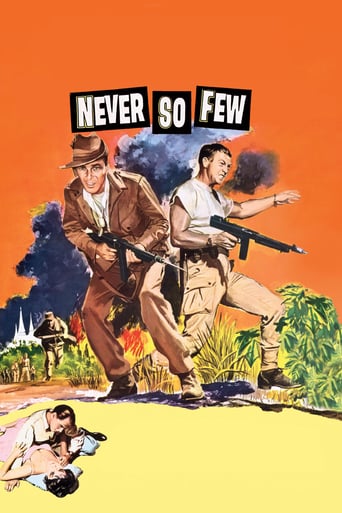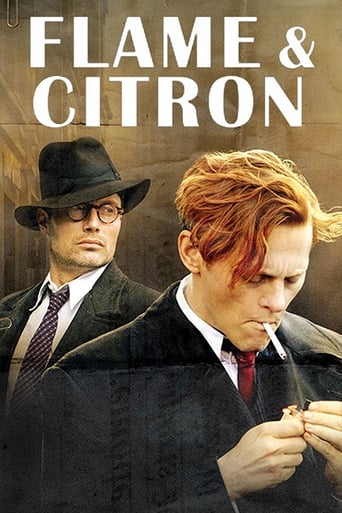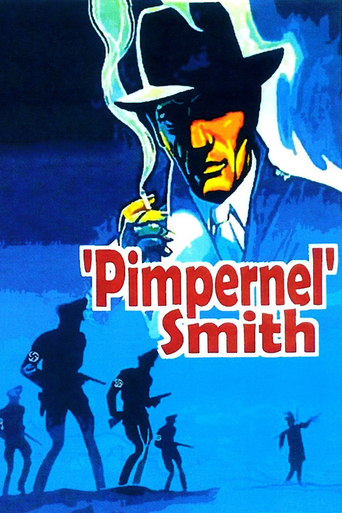
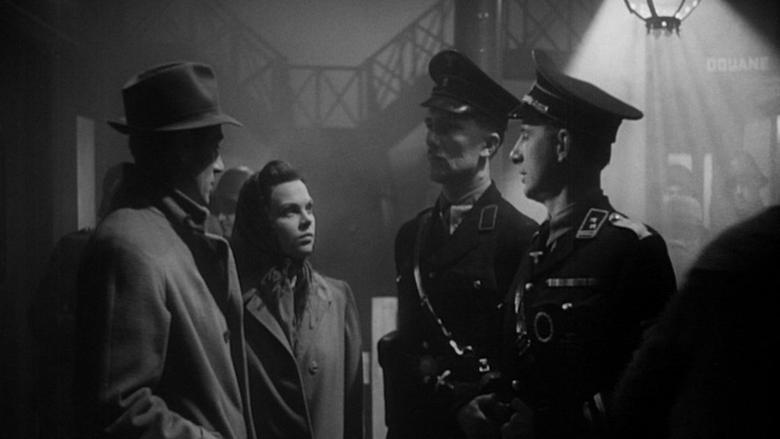
'Pimpernel' Smith (1941)
Eccentric Cambridge archaeologist Horatio Smith takes a group of British and American archaeology students to pre-war Nazi Germany to help in his excavations. His research is supported by the Nazis, since he professes to be looking for evidence of the Aryan origins of German civilisation. However, he has a secret agenda: to free inmates of the concentration camps.
Watch Trailer
Cast
Similar titles
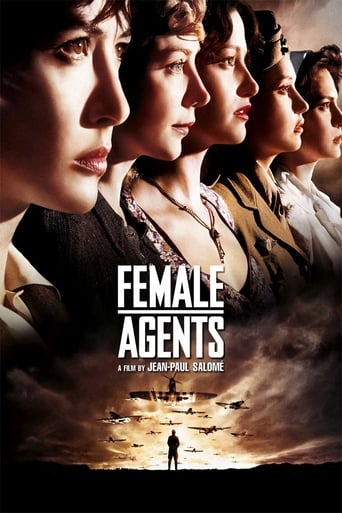
Reviews
To me, this movie is perfection.
The movie's neither hopeful in contrived ways, nor hopeless in different contrived ways. Somehow it manages to be wonderful
It's the kind of movie you'll want to see a second time with someone who hasn't seen it yet, to remember what it was like to watch it for the first time.
Very good movie overall, highly recommended. Most of the negative reviews don't have any merit and are all pollitically based. Give this movie a chance at least, and it might give you a different perspective.
Leslie Howard (Professor Horatio Smith), Francis L. Sullivan (General von Graum), Mary Morris (Ludmilla Koslowski), Hugh McDermott (David Maxwell), Raymond Huntley (Marx), Manning Whiley (Bertie Gregson), Peter Gawthorne (Sidimir Koslowski), Allan Jeayes (Dr Beckendorf), Dennis Arundell (Hoffman), Joan Kemp-Welch (teacher), Philip Friend (Spencer), Lawrence Kitchen (Clarence Elstead), David Tomlinson (Steve), Basil Appleby (Jock McIntyre), Percy Walsh (Dvorak), Roland Pertwee (Sir George Smith), A.E. Matthews (Earl of Meadowbrook), Aubrey Mallalieu (dean), Ernest Butcher (Weber), Ben Williams (Graubitz), Hector Abbas, Oriel Ross, George Street, Arthur Hambling, Harris Arundel, Suzanne Clare, Charles Paton, Ronald Howard, Roddy Hughes.Director: LESLIE HOWARD. Screenplay: Anatole de Grunwald. Adapted by Roland Pertwee, Ian Dalrymple and Anatole de Grunwald from an original story by A.G. MacDonell and Wolfgang Wilhelm. Photography: Mutz Greenbaum, Jack Hildyard. Film editor: Douglas Myers. Music composed by John Greenwood, directed by Muir Mathieson. Associate producer: Harold Huth. Producer: Leslie Howard. Executive producer: Edward Small. (The Suevia DVD rates 10/10).Copyright 15 December 1941 by United Artists Corp. A British National Picture. U.S. release through United Artists. New York opening at the Rivoli: 12 February 1942. U.K. release through Anglo- American: 26 July 1941. Australian release through British Empire Films: 12 March 1942. 11,003 feet. 122 minutes. U.S. release title: Mister V.SYNOPSIS: Nazi Germany before the War: a Cambridge professor and a group of students, are digging for evidence of early Aryan Civilisations. But the Professor quickly becomes the ingenious foe of the Nazi Regime. COMMENT: "Pimpernel Smith" appeared about a year after Dunkirk, and was intended to make the Nazi regime appear ridiculous. The plot of the film, as the title implies, is a variation on Baroness Orczy's novel, "The Scarlet Pimpernel". To translate the 18th century fop Sir Percy Blakeney into 20th century terms and the cunning but shabby Chauvelin into his equivalent as a Nazi agent could have been done with comparative ease. Instead, Howard has made his Pimpernel all tweeds and tobacco and forgetfulness. "Pimpernel Smith" came in third at the British box office in 1941. ("49th Parallel" was first, Chaplin's "The Great Dictator" second). The movie was equally successful in Australia — in fact was so popular it was still being commercially screened in the 1960s, one of a mere handful of wartime British product still available from Australian 35mm exchanges. You'd think that such an exceptionally popular film would regularly turn up on Australian television, wouldn't you? Hell, no! We all know what utter contempt TV program managers have for the likes and dislikes of their viewers. No "Pimpernel Smith", thank you.Despite the wartime propaganda it's still a vastly entertaining movie which oddly has dated far less than the original "Scarlet Pimpernel" which had the advantage of being set in period. Howard and Sullivan make such wonderful adversaries, and Howard has directed with such flair, making full use of some really impressive sets! Photography and other credits are equally polished. And incidentally the scene I can never forget has Howard escaping across a field, the Nazis in hot pursuit, firing wildly. Howard seems to disappear. Then the camera tracks across to a ragged scarecrow and pans slowly down its arm. Blood!
World War II brought Leslie Howard the opportunity to bring up to modern times one of his most beloved parts, that of The Scarlet Pimpernel. This time he's Horatio 'Pimpernel' Smith, archaeologists by day and rescuer of some of the finest intellectual minds in Germany who are marked for death by Adolph Hitler.In The Scarlet Pimpernel Howard is a Georgian fop as his cover for the dashing, unknown, and elusive pimpernel. Substitute fop for tweedy as he's now an Oxford archeology professor and his cover is a beaut. One of the Nazi Aryan racial vanities was that way back in the day there was an Aryan civilization. Being the archaeologist he is, Howard's cover is that he's in Germany on a dig, looking for evidence of that selfsame civilization. He even brings along several students as part of the cover.In one scene Howard is wounded when he's disguised as a scarecrow and a Nazi guard shoots at it to make a point. That does lead to him being found out by his students, one of them being David Tomlinson, later the father in Mary Poppins. To a man, they all decide to stay and help him with his work.Howard's a bachelor here so he doesn't have wife Merle Oberon and her family dirty laundry to compromise him as he did in The Scarlet Pimpernel. Here he's dealing with Mary Morris who is collaborating with the Nazis to keep her musician father, Peter Gawthorne alive.Taking the place of Howard's relentless foe Chauvelin as played by Raymond Massey is Francis L. Sullivan as General Von Graum of the Gestapo. Sullivan is a favorite character actor of mine and a joy to watch in any film he does whether a good guy or the baddest of bad guys as he is here.Leslie Howard directed this film himself and it's interesting to speculate had he survived World War II whether he would have done more work behind rather than in front of the camera. In directing Pimpernel Smith, he certainly had the advantage of knowing his character well.And you shouldn't pass up an opportunity to get to know him too.
I do love this film but it is occasionally really hard work trying to work out who on earth is German and who is British in this. The German officers have the most amazingly plumb British Public School accents imaginable and when a German camp officer says such things as "He'll be in Switzerland by now, there'll be the devil to pay for this!" it really doesn't help matters much.Luckily, most of the actors are wearing the appropriate uniforms so it is a little easier and really, it just adds to the fun of the whole thing.Enjoy!
Pimpernel Smith is together with Chaplin's The Great Dictator one of the most effective anti-Nazi films ever made. OK, the concentration camp seems rather idyllic compared to what we now know about those places, but the unique mix of comedy and suspense is masterful (it reminds me somewhat of the now forgotten thrillers by Manning Coles, light-years from the nitty-gritty tone of today's blockbusters. Just to set the record straight: Howard's last lines, spoken from the mist at the frontier railway station are first "I'll be back." Sullivan fires a couple of shots into the dark before the voice comes back: "We'll ALL be back." Spoken in 1941, at the height of the Battle of Britain and years before the invasion, those word are nicely prophetic...
